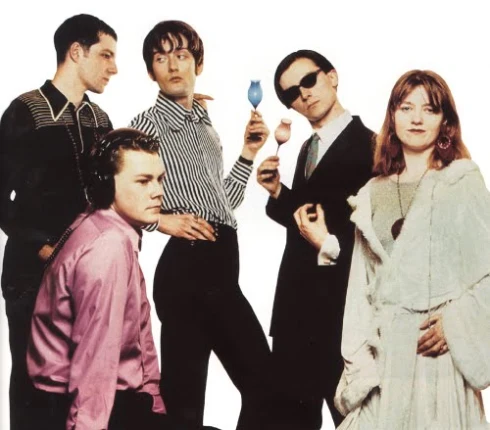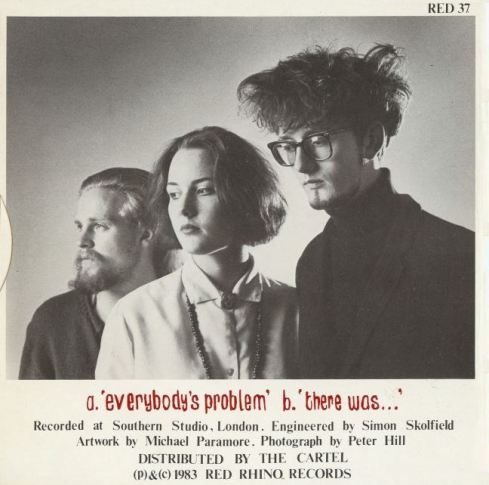Street Lites (b-side to ‘Do You Remember The First Time’, 1994)
Street Lites at Pulpwiki
Ten years ago, when I took this photo, I was a lodger in a small town outside Prague. Every evening I would take the subway to my “local” bar in a central suburb, and return at around 4am via two night trams and one night bus, which deposited me on a motorway sliproad a mile away from home. That’s how every day ended – walking for half an hour along a deathly quiet three-lane highway with nothing to see except road and grass verge.
If that sounds awful, then let me stress that it wasn’t – in fact it was my favourite part of the day. Something about the simplicity of the artificial geography and the lack of distractions allowed me to think clearly, while the fresh air sobered me up. Occasionally a lorry would approach, pass and retreat into the darkness – a moment of great drama in the stillness of the night. On the few occasions I was able to share this journey with someone, the time became magic, incandescent, unforgettable.
These are the moments Street Lites evokes for me – that unnatural stillness you can only find in a modern European city at night. Always a group with a feel for place and time, Pulp have already taken us on night-time adventures through terrifying northern cities populated by stalkers and thugs, sexualised urban landscapes, furtive, perverse suburbia and repulsive, blighted tower blocks. This is different, though – we’ve left The North behind, or any locality for that matter. These places are like that – lacking in character, you could call it, or a blank canvas for your own feelings. This could be the bedsit London of Different Class, or the alienated nowhere of This Is Hardcore, we just don’t know.
It’s odd how many threads are picked up here, while we enter sonically new territory. Is this just a shiny chrome mirror held up to Blue Glow, with all the grime and fear leeched out, cocaine-fuelled mania taking the place of paranoid hallucinations? The organ intro sounds like Silence, of all things, and structurally we’re in the same territory as Someone Like The Moon – a similarly-constructed song, but with a much more satisfying realisation. What makes this song different is the newly confident narrator, and an adult relationship on equal terms – Jarvis has stopped complaining about new boyfriends and started an affair with somebody else’s wife. It’s not all chocolate boxes and roses, of course – they know they are doing something wrong, something they can’t defend, but that knowledge somehow just makes it harder for them to control themselves.
There’s a desperate sexual itch here, then, but one that’s strung-out and cold too. The group seem to have recorded and mixed the track in the absence of Ed Buller, and the sound is consequently much more minimalist, with Russell’s violin given much more space to roam. The first verse consists only of a few tracks – organ, vocal and plucked refrain, but even when the full band join in at the chorus everything sound separated and clear. Nick’s drums – an odd little stuttering jazz fill, looped – continue through to the second verse, lending the track an odd underlying skiffle/trip-hop hybrid rhythm. Otherwise there’s little in the way of variation, more the building of a groove, with Steve’s bassline working as the pulsing heartbeat of the sleeping city. It’s a contradictory sound – produced from a haphazard collection of parts, while the entirety sounds uniformly cold and smooth, yet warm and sensual.
Jarvis’s vocals are a vital factor here, of course. In a sense the whole track sounds like a come-on to a woman, but underneath it’s a bit more complex. The vocal is several takes on top of each-other – some spoken, some sung, one just a series of grunts and groans, each taking turns to come to the foreground – but while these sound different, they have a unity of purpose. There is little in the way of confusion or mess here.
My favourite part of the track comes at three minutes in – one of those perspective-shaking breakdowns that seem to represent the group at their best, moments of clarity through distortion – “We’ve got to go on meeting like this…” Even without it, though, Street Lites would be a success, albeit a secret one. A near-six-minute semi-epic, it didn’t fit with the narrative of His ‘n’ Hers at all. It’s just one of those things that has to stand alone.







